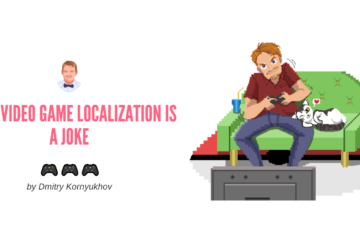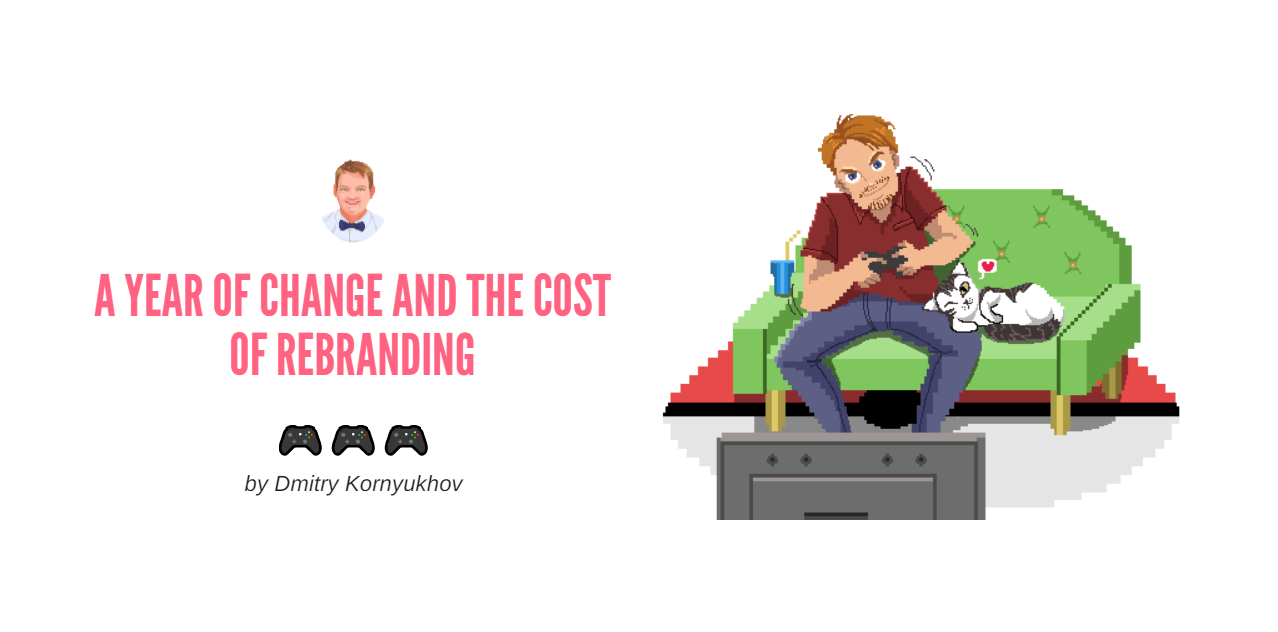The Single Thing You Can Do As A Newbie Translator Is…
Reading time: [reading_duration] [/reading_duration]
Start Learning.
Wait a minute…
“Didn’t I just spend 5 years getting my master’s degree in linguistics and translation?
Is it ever going to end?
Can I just be a translator already?”
Well… yes, you can.
And trust me, you’ll need that knowledge. So keep it.
It will help you become a pretty good translator. Maybe you’ll even become an extraordinary translator one day.
But we all live in this nasty thing called “harsh reality” and that harsh reality keeps whispering in my ear one simple truth:
[bctt tweet=”Being a good translator and a successful one is not always the same thing.”]
Here is a real-life example for you:
There was one girl and she was a ridiculously talented English-Russian translator. She was at the top of my class back in my Uni days. Teachers loved her. Her translations were the definition of perfection. She should’ve become a successful translator, she should’ve conquered the world…
But she didn’t.
She decided to work in-house at the local translation agency and 5 years later she’s still there, making something around $500 per month.
Is she a successful mother?
Absolutely! She’s raising a family with two beautiful girls.
Is she a successful friend?
Of course she is! She is an amazingly caring person and she will always be surrounded by true friends.
Is she a successful translator?
I’m not so sure about this one, sorry.
Don’t get me wrong, I’m not saying that she is a lesser translator only because she’s making $500 a month.
As far as I’m concerned, she’s still the same amazingly talented translator.
She’s very happy at her job too.
But here is something many people afraid to admit:
[bctt tweet=”Your success will always be measured by the X amount of $ you make.”]
That’s just how it is. You can hate it, you can deny it, you can argue with me, but at the end of the day, you’re not successful unless you make an X amount of dollars per year or per month or per day.
Do you want to hear something funny?
That X amount of dollars is absolutely arbitrary.
It only exists in our heads.
And it will be different for each and every translator out there.
I would even take it to the next level and say that I’m not successful because I don’t make 1 million dollars a year (which is my X amount of dollars that defines success for me).
And you probably have a completely different number in your head.
Pardon my French, but how fucked up is that?
WHERE WAS I?
Sorry, I got carried away.
The point I was trying to make is that it’s very hard to make it as newbie translator.
It sucks, I know, but you have to accept the fact that this will be the hardest thing you’ll ever do.
And it’s called… building a business.
You’re not alone, though.
There are hundreds of thousands of other freelance translators that are trying to get their businesses off the ground.
But you’re lucky, you’re lucky because it’s much easier these days. You got the Internet.
You literally have everything you need to succeed as a freelance translator at your fingertips.
So I’ll repeat again:
[bctt tweet=”The best thing you can do as a newbie translator is start learning.”]
I suggest you start writing too.
Continuous learning, that constant craving for new knowledge – those are the things that’ll help you stand out of the crowd.
Learn about business, marketing, sales, web design, SEO, customer service, client relationship, copywriting, translation.
You’ll need all those things to become a successful translator. Both in the eyes of your colleagues, your clients and your own eyes.
So What’s That One App I Promised To Tell You About?
Ok, I think 642 words later it’s time to finally get to the point.
It’s called Feedly.
And it has literally changed the way I learn.  Feedly simplifies the way I find and read new articles
Feedly simplifies the way I find and read new articles
Yes, I get that this blog post probably looks like one giant marketing trick by Feedly but trust me, they really deserve all the praise.
Here is a simple fact: Feedly helped me save hundreds of hours which I’ve spent on searching new content or browsing through a pile of newsletters in my inbox.
After I’ve started using Feedly I’ve learnt much more about marketing, translation industry, sales, web design, SEO than I ever learned in college (I took Small Business Entrepreneurship program at George Brown College a few years ago).
But the best thing is: it’s free.
You can add your favourite blogs and websites and start following them in Feedly.
You can even add this blog if you like:

Every Blog You Follow Has An RSS Feed That Helps Feedly Find It
You can also create collection based on your interests:

Don’t forget to add your favourite blogs to must read. That way you’ll never miss a thing.
So that’s it.
This is the app that every newbie translator should use.
Because knowledge is power.
And learning is the best thing you can do at that stage of your career.
There are so many seasoned translators out there sharing invaluable knowledge with you.
Sharing their mistakes.
Their experience.
Their ideas.
[bctt tweet=”If you really want to make it in this industry start reading like crazy.”]
That’s what I’ve been doing for the past few years and it has changed my life and my business completely.



19 Comments
Kevin · July 20, 2015 at 12:45 pm
Thanks Dmitry — I’m not a translator but I am going to register for Feedly right now! Great article.
Dmitry Kornyukhov · July 21, 2015 at 7:53 am
Thanks, Kevin! It’s a handy app and I know you’ll love it because you like reading 🙂
Martina · July 20, 2015 at 1:22 pm
Agreed! I probably spend more time reading than translating 🙂 but within a year and a half year it has totally changed (or, allow me to build) my business (and help others)!
Dmitry Kornyukhov · July 21, 2015 at 7:56 am
Absolutely! The more you read the more you know and new knowledge can open up whole new horizons and opportunities.
Dmitry Kornyukhov · July 25, 2015 at 6:17 pm
Same here! Reading has become a part of my daily routine.
Fred Condette · July 21, 2015 at 9:05 am
Hi Dmitry,
thanks for your very interesting blog post! Absolutely agree that Feedly is a must-have app.
I really love to learn new things every day, gain knowledge, and i first used RSS readers/feed aggregators such as Sage, then Netvibes, as well as Yahoo Pipes (to filter content from RSS feeds, discontinued now), then switched to Feedly a few years ago. Best and most flexible “knowledge app” I ever used.
What i like Feedly is a fantastic multiplatform app, I use it on my Android smartphone, tablet but also as a desktop application on the MacBook Air, so knowledge is accessible from any device I have with me.
I recently also added some podcast feeds (also YouTube feeds) to my feedly subscriptions, so you can read, but also listen to content, all from within the same central app.
I also like to send articles/posts to read from Twitter to Pocket, using an IFTTT “recipe” (tweets marked as favorites sent to Pocket), or from the web browser to Pocket, mostly to get rid of the clutter. Used Instapaper before that to send content to read to my Kindle.
Dmitry Kornyukhov · July 22, 2015 at 10:04 am
Thanks for sharing, Fred! I quite agree that Feedly is invaluable when it comes to finding new knowledge. Can you tell more about Pocket and IFTTT? Do you find them useful?
Fred Condette · July 22, 2015 at 12:09 pm
Hi Dmitry,
just added your blog to my Feedly subscriptions 🙂
I use Pocket (was called Read It Later before) to read on the tablet after work, or on the smartphone (when I have just a few minutes to wait and feel like reading).
All the clutter is removed so you can really concentrate on the main content. Firefox has a similar feature called “Reader View” but I don’t usually read a lot on a monitor. I also used Readability which is similar to Pocket for some time, but stopped to use only one app.
I use Feedly mostly to “discover” new interesting content from my feeds (“semi-passive” browsing approach),
whereas I send specific articles/posts to Pocket from the browser (“active” mode if you will).
It can be a Wikipedia article or a tutorial I stumble upon while working/searching terminology, things that are outside the scope of my Feedly subscriptions. So basically, Feedly + Pocket + Twitter cover my thirst for knowledge 🙂 (+ Evernote to assist the brain!).
A drawback of Feedly in my opinion is that some posts/articles (from major tech websites in my case) are truncated and you can only read the first lines and need to touch “Visit Website” to read the full article/post outside Feedly, in a browser, which I find annoying.
I only use IFTTT (actually now named “IF”) to send my Twitter favorites to Pocket. When I mark a tweet containing a link as a favorite, IFTTT will send it to my Pocket list, and display the linked Web page. But it has many more recipes to automate actions between apps :
Save a favorited item from Pocket to Evernote
Sync Dropbox to OneDrive
Save Twitter Favorites to Evernote
…
Yevgen · July 22, 2015 at 9:46 am
Haha, funny thing. I added your blog to my Feedly and the first post I read was about Feedly. How about that?
Dmitry Kornyukhov · July 22, 2015 at 10:07 am
Haha! Yep, that’s because it’s the most recent one on my blog 🙂 Feedly pulls out the RSS data and adds new blog posts to the list once they’re published. Thanks for adding my blog by the way! High five from Toronto!
Alexey Tsapov · July 24, 2015 at 8:43 am
Hi Dmitry,
I just thought yesterday how good would be to have all translation-related blogs in one place – and today found your article of such app 🙂
And I added your blog to Feedly, too!
Dmitry Kornyukhov · July 25, 2015 at 11:47 am
Thank you, Alexey! Yep, it’s a very useful app.
Chris · July 28, 2015 at 10:47 am
Hi there, been a reader for a while now, congratulations on a well-designed and above all useful blog! Nice entry, and a good recommendation. Any recommendations for apps to help us with accountancy/keeping organised? Always the most boring part of the month for me when I have to deal with the billing, etc.
Dmitry Kornyukhov · September 21, 2015 at 9:20 am
I’m using Translation Office 3000 – it’s a great and pretty robust accounting system designed for translators.
Noora · July 30, 2015 at 9:09 am
Hi Dmitry,
I discovered your lovely and very inspiring blog via a Finnish Translation Studies group in Facebook and just wanted to say a big ‘Thank you’! I am a nearly-there Translation Studies graduate in Finnish to English translation and I’ve been lately mulling over the idea of freelancing after graduation (I already work part-time for a small agency, but for the most part I’m still a full-time student). As you suggest in your post, I’ve been trying to read about freelancing in translation and about the various aspects of the field as much as you can before embarking on the career and I think it’s wonderful that you’re sharing your experiences with other translators (and us newbies).
Anyways, I look forward to reading more of your posts in the future!
Dmitry Kornyukhov · September 21, 2015 at 9:40 am
Hi Noora!
Thank you so much for reading! Reading is the easiest way to learn something that can tremendously improve your skills. Good luck with you studies and your future career which will be absolutely amazing!
Seth · September 20, 2015 at 11:42 pm
Hi Dmitry,
Kudos on creating content that triggers discussion:
I appreciate that you present your opinion so passionately and authoritatively; but no matter how much you believe that success is measured in dollars and cents—and that anyone who says otherwise is simply kidding himself/herself—this really is, unfortunately, merely your own opinion. And it’s one that I disagree with completely.
In fact, I think that this very way of thinking is what has caused so many problems in our world: the thinking that success does not exist without wealth. I’m not going to lie; when I read your post, I found it really sad that you consider this to be the way things are. Someone who is good at his/her job, contributes positively to society, and is happy but makes a modest income (like the woman you described) is someone whom I would consider to be more successful than someone who goes through life making all of their decisions based on raking in as much dough as possible, who is ultimately rich, and who perhaps does not present as much societal value as the person earning an income that some would deem to be mediocre.
The success of a person is measured, in my opinion (there is not one authoritatively defined, universally-accepted-as-correct formula or definition), via the combination—in some unquantifiable proportion—of three factors:
1) how happy that person is with his/her own life;
2) whether that person has honed a particular craft or has developed skills and experience in whichever path he or she chose to pursue in life; and
3) looking at how well-off society/the world would be if you multiplied that person’s behaviour/choices/actions out by larger numbers of the global population.
But, hey—to each one’s own! That’s just the way I see it, and I felt it was worth commenting considering how at odds our definitions seem to be.
Thanks for all your work. Beautiful website, sir!
Cheers!
S
Dmitry Kornyukhov · September 21, 2015 at 9:58 am
Hi Seth!
I absolutely agree with everything you wrote. I’m trying to use the same approach. But the reality is that the majority of people see wealth and success as equals. I know that it’s a wrong way of thinking, considering the fact that the very definition of wealth differs from person to person. Your way of thinking in my opinion is what this world needs, but alas, 9 people out of 10 believe that wealth is the definition of success.
But I’m glad that you’re not afraid to share your opinion because it is important that you stand by your principles and your perception of this issue.
I don’t know what’s going to happen to our society in the next 100 years, but I do hope that people will realize that money can’t buy you everything.
P.S.: Your website is pretty awesome too! Love the cover photo! Absolutely epic! High-five from Toronto!
Rossitsa Yankova Iordanova · February 1, 2016 at 7:51 am
Hi, friends!
It was so interesting to read you all!
First off, to Seth on Dmitry’s “cash-shows-success” post.
Well, the way I see it, cash is earned for having done some job, right? So, the more cash, the more work has been done (more translations, in our case), hence more experience. And I do think experience matters. A lot! If I were to pick between two translators to do a job, I personally would first check out the one with longer working experience. After all, translation is like any craft – you study it first but then spend a lifetime improving and perfecting it. This needs time, lots of work and total dedication. The reward is getting more and more experienced, hence, getting more customers, hence, getting more cash. 😉 :D) This is how cash can really show success.
Now, about Feedly. First time I hear about it. Shame on me! But I’ll definitely check it out!
For now I am using Paperli (my own curated daily edition: https://paper.li/f-1453816792 ) and Flipboard.
But I’m always happy to find out and try new stuff.
Best to all and have a great week! 🙂
Rossi